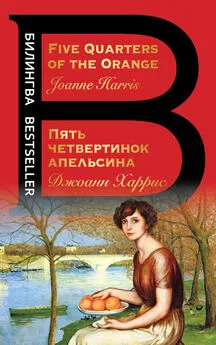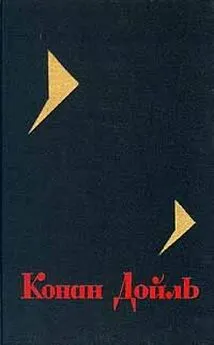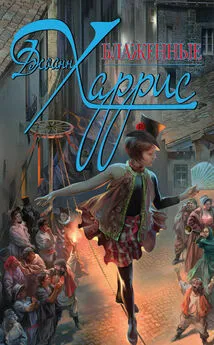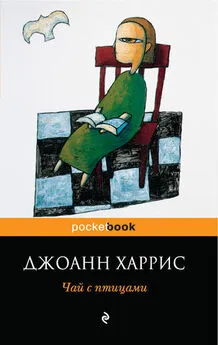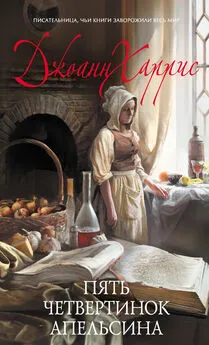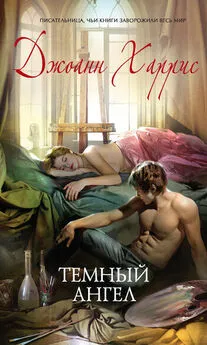Джоанн Харрис - Five Quarters of the Orange / Пять четвертинок апельсина
- Название:Five Quarters of the Orange / Пять четвертинок апельсина
- Автор:
- Жанр:
- Издательство:неизвестно
- Год:2022
- Город:Москва
- ISBN:978-5-04-163417-9
- Рейтинг:
- Избранное:Добавить в избранное
-
Отзывы:
-
Ваша оценка:
Джоанн Харрис - Five Quarters of the Orange / Пять четвертинок апельсина краткое содержание
Оригинальный текст и перевод на страницах одной книги – это эффективный способ усовершенствовать знание английского языка.
От матери в наследство Фрамбуаза получила альбом с кулинарными рецептами – негусто, если учесть, что ее брату Кассису досталась ферма, а старшей сестре Рен-Клод – винный погреб со всем содержимым. Но весь фокус в том, что на полях альбома, рядом с рецептами разных блюд и травяных снадобий, мать записывала свои мысли и признания относительно некоторых событий ее жизни – словом, вела своеобразный дневник. И в этом дневнике Фрамбуаза пытается найти ответы на мрачные загадки прошлого.
«Харрис создала многослойный сюжет, усыпанный восхитительными описаниями французских книг и раскрывающий встряхивающий эффект войны на хрупкое семейное устройство». – Publishers Weekly
«Из ее книг эта – пока самая сильная: острая, с горчинкой…» – Independent
В формате PDF A4 сохранен издательский макет.
Five Quarters of the Orange / Пять четвертинок апельсина - читать онлайн бесплатно ознакомительный отрывок
Интервал:
Закладка:
“I always wanted to fight everybody too,” said my mother. “I would have sacrificed everything, hurt anyone to prove myself right. To win.” She looked at me intently, curiously, her black eyes like pinpricks in tar. “Contrary, that’s what you are. I knew from the moment you were born that’s what you were going to be. You started it all again, worse than ever. The way you screamed in the night and wouldn’t feed-and me lying awake with the doors closed and my head pounding.”
I did not answer. After a moment my mother laughed rather jeeringly and began to clear the dishes. It was the last time she spoke of the war between us, though that war was far from over.
3
The Lookout Post was a large elm on the near bank of the Loire. Half overhanging the water, a clutch of thick roots hanging down deep from the dry soil of the bank, it was easy to climb even for me, and from the higher branches I could see all of Les Laveuses. Cassis and Paul had built a primitive tree house there – a platform and some branches bent over to make a roof – but I was the one who spent the most time in the completed shelter. Reinette was reluctant to climb to the top, though the way had been made easier by means of a knotted rope, and Cassis rarely went there any more, so I often had the place to myself. I went there to think and to watch the road, where sometimes I could see the Germans in their jeeps-or more often, motorcycles-passing by.
Of course, there was little to interest the Germans in Les Laveuses. There were no barracks, no school, no public buildings for them to occupy. They settled in Angers instead, with only a few patrols around the neighboring villages, and all I saw of them – except for the vehicles on the road – were the groups of soldiers sent every week to requisition produce from the Hourias farm. Our own was less frequented: we had no cows, only a few pigs and goats. Our main source of income was fruit, and the season had barely begun. A couple of soldiers came, halfheartedly, once a month, but the best of our supplies were well hidden, and Mother always sent me out into the orchard when the soldiers came. Even so I was curious about the gray uniforms, sometimes sitting in the Lookout Post and shooting imaginary rockets at the jeeps as they sped by. I was not truly hostile – none of the children were. We were merely curious, repeating the insults our parents taught us – filthy Boche, Nazi swine – out of an instinct for mimicry. I had no idea of what was happening in occupied France; little enough notion of where Berlin even was.
Once they had come to requisition a violin from Denis Gaudin, Jeannette’s grandfather. Jeannette told me about it just a week before she died. It was getting dark and the blackout shutters were already in place, when she heard a knocking at the door. She opened it and saw a German officer. In polite though laborious French he addressed her grandfather.
“Monsieur, I… understand… you have… a violin. I… need it.”
A few of the officers, it seemed, had decided to form a military band. I suppose even Germans needed some way of passing the time.
Old Denis Gaudin looked at him.
“A violin, mein Herr, is like a woman,” he replied pleasantly. “Not to be lent out.”
And very gently he closed the door. There was a silence as the officer digested this. Jeannette looked up at her grandfather with wide eyes. Then, outside, the sound of the German officer laughing and repeating:
“Wie eine Frau! Wie eine Frau!”
The German officer never came back, and Denis kept his violin until much later, almost until the end of the war.
4
For a time that summer, however, my main interest was not the Germans. I spent most of my waking hours-and many of my sleeping-devising ways of trapping Old Mother. I studied the various techniques of fishing. Line for eels, pots for crays, dragnets, straight nets, live bait and skim lures. I went to Jean-Marc Hourias and plagued him until he had told me all he knew about bait. I dug bloodworms from the sides of the banks and learned to keep them in my mouth for warmth. I trapped bluebottles and threaded them on lines bristling with fishhooks like strange tinsel. I made traps from cages of willow and thread, baited with scraps. A single touch on one of the threads in the cage and it would spring shut, jerking the whole contraption out of the water as the bent branch underneath it was released. I stretched pieces of net across the narrower channels between the sandbanks. I left static lines baited with boluses of rotting meat hanging from the far bank. In this way I caught any number of perch, small bleaks, gudgeons, minnows and eels. Some I took home to eat and watched my mother prepare them. The kitchen was the now only neutral place in the house, a place of brief respite from our private war. I used to stand beside her, listening to her low monotone, and together we made her bouillabaisse angevine, the fish stew with red onions and thyme, and perch roasted in tinfoil with tarragon and wild mushrooms. Some of my catches I left at the Standing Stones in gaudy, stinking garlands: a warning and a challenge.
But Old Mother did not come. On Sundays, when Reine and Cassis were home from school, I would try to infuse them with my passion for the hunt. But since Reine-Claude’s admission to the collège earlier that year the two of them had become a race apart. Five years separated me from Cassis. From Reine, three. And yet they seemed closer than two years to each other, gilded with adulthood, so alike with their golden faces and high cheekbones that they might almost have been twins. They often talked together in secret whispers, secret laughter, naming friends I had never heard of, laughing at private jokes. Alien names punctuated their conversations. Monsieur Toupet. Madame Froussine. Mademoiselle Culourd. Cassis had nicknames for all his teachers and could mimic their habits, their voices to make Reine laugh. Other names, whispered under cover of darkness when I was asleep, seemed to be those of their friends. Heinemann. Leibniz. Schwartz. Laughter when these names were whispered, strange, spiteful laughter with a bright note of guilt and hysteria. They were names I did not recognize, foreign names, and when I asked about them, Cassis and Reine-Claude simply giggled and ran away, arm in arm, toward the orchard.
This elusiveness troubled me more than I could have imagined. They had become conspirators where before they were my equals. Suddenly all our shared activities had become childish to them. The Lookout Post, the Standing Stones, were mine alone. Reine-Claude claimed to be afraid to go fishing for fear of snakes. Instead she stayed in her room, brushing her hair into complicated styles and sighing over photographs of film actresses. Cassis listened with polite inattention to my excited plans, then made excuses to leave me on my own. A lesson to copy. Latin verbs to learn for Monsieur Toubon. I’d understand later, when I was older. They made every effort to keep me away from them. They made appointments with me that they did not keep, sending me across Les Laveuses on an imaginary errand, promising to meet me at the river then making for the forest alone, while I waited, angry tears burning my eyes. They pretended innocence when I challenged them, clapping sly hands to their mouths-Did we really say the big elm? I was so sure we agreed the second oak-and giggling when I stalked away.
They only went occasionally to the river to swim, Reine-Claude entering the water gingerly, and only in the deeper, clearer parts where snakes were unlikely to venture. I sought their attention, making extravagant dives from the bank and swimming underwater for such long stretches that Reine-Claude would scream that I was drowned. Even so I felt them slipping from me little by little, and loneliness overwhelmed me.
Only Paul stayed loyal during this time. Though he was older than Reine-Claude and almost the same age as Cassis, he seemed younger, less sophisticated. He was inarticulate when they were there, smiling in agonized embarrassment when they talked about school. Paul could barely read, and his writing was the stilted, painful printing of a much younger child. He liked stories, though, and I would read to him from Cassis’s magazines when he came to the Lookout Post. We used to sit on the platform, he whittling at a piece of wood with his small knife while I read The Mummy’s Tomb or The Martian Invasion, half a loaf of bread on the board between us, from which we would occasionally cut a slice. Sometimes he brought a piece of rillettes wrapped in a sheet of waxed paper, or half a camembert. To our little feast, I would add a pocketful of strawberries or one of the goat’s cheeses rolled in ash that my mother called petits cendrés. From the Post I could see all my nets and traps, which I checked every hour, resetting them as necessary and removing the small fry.
“What’ll you wish for when you catch her?”
By now he believed implicitly that I would catch the old pike, and he spoke with a kind of reluctant awe.
I considered.
“Dunno.” I took a bite of bread and rillettes. “There’s no point making plans till I’ve caught it. That might take time.”
It was time I was willing to take. Three weeks into June and my enthusiasm had not faltered. Quite the opposite. Even the indifference of Cassis and Reine-Claude only served to increase my stubbornness. Old Mother was a talisman in my mind, a slinking black talisman that, if I could only reach it, might put right everything which was skewed.
I’d show them. The day I caught Old Mother they’d all look at me in amazement. Cassis, Reine-and to see that look in my mother’s face, to make her see me, perhaps to clench her fists in rage… Or to smile with peculiar sweetness and open her arms…
But here my fantasy stopped; I dared not imagine further.
“‘Sides,” I said with studied languor. “I don’t believe in wishes. I told you that already.”
Paul looked cynical.
“If you don’t believe in wishes,” he pointed out, “then what’re you doing it for at all?”
I shook my head.
“Dunno,” I said at last. “Just for something to do, I expect.”
He laughed.
“That’s you, Boise,” he said between gusts of laughter. “That’s you all over, that is. Catch Old Mother for something to do!”
And he was off again, rolling alarmingly close to the edge of the platform in his incomprehensible hilarity until Malabar, tied with string at the foot of the tree, began to bark sharply and we fell silent before our cover was blown.
5
Soon after that, I found the lipstick under Reine-Claude’s mattress. A stupid place to hide it, really-anyone could have found it, even Mother-but Reinette was never imaginative. It was my turn to make the beds, and the thing must have worked its way under the bottom sheet, because that was where I found it, tucked between the lip of the mattress and the bedboard. At first I didn’t recognize it. Mother never used makeup. A small golden cylinder, like a stubby pen. I turned the cap, encountered resistance, opened. I was experimenting rather gingerly on my arm when I heard a gasp behind me and Reinette jerked me round. Her face was pale and contorted.
“Give me that!” she hissed. “That’s mine!”
She snatched the lipstick from my fingers and it fell to the floor, rolling under the bed. Quickly she scrabbled to retrieve it, her face flaring.
“Where did you get that?” I asked curiously. “Does Mother know you’ve got it?”
“None of your business,“ gasped Reinette, emerging from under the bed. ”You’ve no right to go snooping in my private things. And if you dare tell anyone-“
Читать дальшеИнтервал:
Закладка:
